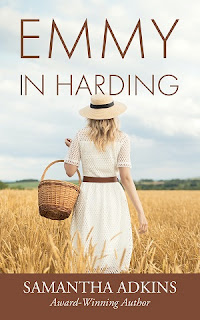Step One: Write a great query letter. Start with a general letter and then personalize it for each publisher, editor, and agent. A query usually needs the following:
·
A short bio – one to two sentences about
yourself. This is your chance to sell yourself and your writing. Take your
time!
·
Your working title and word count – Your novel
must be finished before you send it out
·
A one-sentence pitch – sometimes called an
elevator pitch. Sell your entire novel in one sentence! I find this extremely
difficult.
·
A one-paragraph summary
·
A one- to two-page synopsis – I’m no expert. I
used the Save the Cat format to write my last synopsis. I think it helped, but
I still haven’t sold my book😊
Step Two: Research publishers, editors, and agents. I
do general Google searches and include my genre and the year. The TCK website
usually has great suggestions.
Step Three: Start sending and keep sending queries until you land an agent or publisher. Read submission guidelines carefully. Make sure to send exactly what they want and nothing more. For instance, some publishers want to see three sample chapters. These must be your first three chapters. Don't send more than three.
Also, Some agents and
publishers do not accept simultaneous submissions (ie. When you send your work
to one agent, they do not want you to send it to any other agents until they
have accepted our rejected your work.) I don’t bother with these anymore.
Ideally, try sending three or more every week. I also like
to send three more as soon as I receive a rejection. It used to take me a week
or more to get over each rejection. Now, instead of wallowing, I turn this energy
to researching other avenues.
Step Four: Start a new project. You are a writer, not
a marketer, although marketing is extremely helpful to writers. You should
become better at marketing yourself, but what I’m trying to say is that writing
is your passion. Don’t stop writing! This is the part that feeds your soul and
inspires you. Searching for a publisher or agent can be a crushing process. Writing
something new should keep you grounded. If you need to take breaks from the
query process, do it. Or, better yet, if you can afford it, hire someone else
to do this for you.
Best of luck! I'd love to read about your experience in this journey in the comments below. Click here if you want to read more about my first experience landing a publisher.









